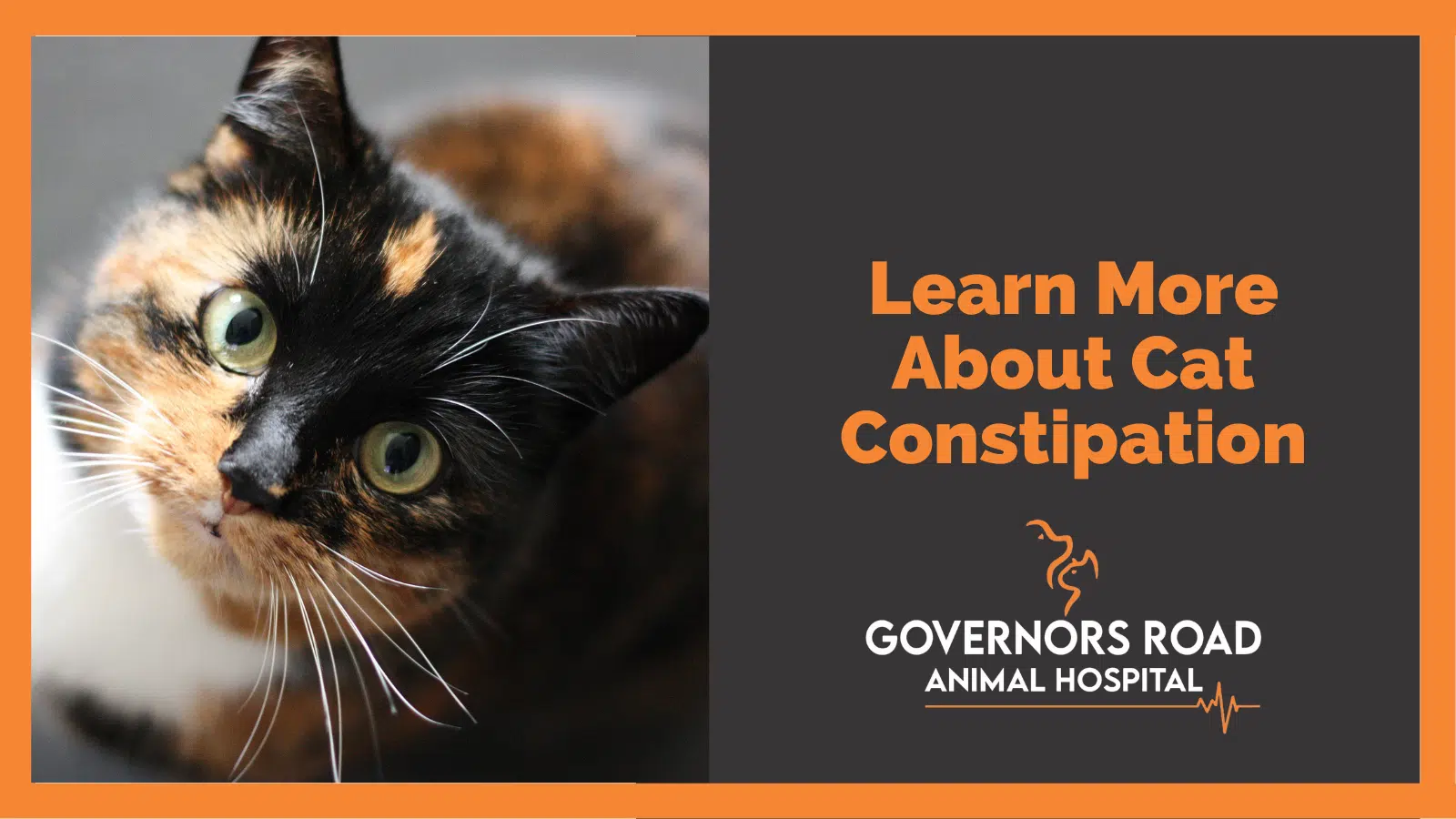
22 Dec Learn More About Cat Constipation
Have you ever seen your precious feline in distress and wondered why? Constipation might be the cause! Constipation is a pervasive problem for cats and can lead to severe health issues like depression, lethargy or even bowel blockages.
Today, we will discuss everything you need to know about cat constipation – from what causes it, the symptoms to look out for, possible cures that could help relieve your cat’s distress, and when to visit a vet clinic.
Signs of Cat Constipation
Constipation is a common problem in cats, and it can be hard to recognize the signs. Here’s a quick guide to help you identify if your feline friend is experiencing constipation.
Lack of Appetite
If your cat has been exhibiting a lack of appetite and general lethargy, it could be a sign of constipation. When cats are constipated, their digestive system slows down, making them feel unwell and decreasing their appetite. If this persists for more than 24 hours, you must take your cat to a veterinarian.
Excessive Grooming
It’s not uncommon for cats to groom themselves excessively when they’re feeling uncomfortable or unwell. If your cat is grooming itself more than usual, or if you notice any bald patches on its fur, it could be due to constipation.
Weight Loss or Gain
When cats become constipated, they often stop using the bathroom regularly, which can result in either weight gain or loss, depending on how much food they consume. Paying attention to changes in your cat’s weight can help you spot this issue before it becomes severe.
Sudden Change in Behavior
If your usually friendly cat starts becoming aggressive towards you or other animals in the home, something might be wrong with them physically. Constipation can cause bloating and discomfort, increasing aggression or irritability with other animals or people around them.
How to Manage Cat Constipation at Home?
While visiting a vet clinic in Dundas should be a priority, there are some simple and effective ways to manage cat constipation at home. Here’s how you can handle this problem if going to a veterinarian is not immediately possible:
Increase Water Intake
Cats should always have access to fresh water, especially if they eat a dry diet. Add wet food or chicken broth to their meals to encourage your cat to drink more water.
Wet food is made up of roughly 80-85% water, so it helps increase their hydration levels significantly. Additionally, adding moisture to their regular kibble will enhance its flavour and texture, making it more interesting for them and could help them drink more overall.
Monitor Fiber Intake
Fibre is an essential part of any diet because it helps regulate digestion and prevents constipation from occurring in the first place. Adding fibre-rich foods such as pumpkin or psyllium husk powder (easy to sprinkle on top of wet food) can help prevent future constipation.
Exercise More
Exercise plays a vital role in any animal’s health, including cats. Every veterinarian will tell you that increasing your pet’s activity levels can help stimulate bowel movements and prevent obesity.
Simple things like playing with toys, setting up a scratching post, or spending quality time with your pet each day can help increase exercise levels and maintain overall good health for your furry friend!
When to Visit the Vet Clinic?
A cat’s constipation or strenuous bowel movement is often a sign of something more serious than an upset stomach. It may indicate a bigger problem, such as a dietary issue, stress, or an underlying medical condition.
If dietary and lifestyle changes don’t help your cat, here’s when to contact a veterinarian:
- Changes in Appetite: If you notice your cat eating significantly less than usual, it’s best to take them to the vet immediately.
- Straining and Posture Changes: Cats that experience trouble passing stool may try to squat down repeatedly without producing any stool, which can indicate constipation. In such a case, you should consider taking them in for a checkup by a professional vet immediately.
- Bloody Stool: If you see bloody stools in your cat’s litter box, this could indicate something wrong with their digestive system, possibly even more severe conditions like colitis or inflammatory bowel disease (IBD).
Please do not hesitate to contact Governors Road Animal Hospital team with any questions.



Sorry, the comment form is closed at this time.